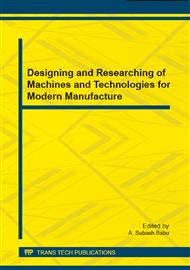p.281
p.285
p.290
p.294
p.300
p.304
p.308
p.312
p.316
System Integration for the Environmental Friendly Electric Vehicle
Abstract:
This paper introduced a new power flow control strategy for a variable speed engine-generator based range-extended electric vehicle. The specific fuel consumption map of the internal combustion engine (ICE) has been obtained by off-line experiments to achieve optimal fuel efficiency. Finally, a typical range-extended electric vehicle is modeled and investigated such as acceleration traversing ramp, maximum speed, fuel consumption and emission are performed on the dynamic model of a range-extended electric vehicle. The energy consumption and cost were compared to tradition range-extended electric vehicle. Computer simulation results obtained, confirm the validity and performance of the proposed power flow control approach using for series hybrid electric vehicle.
Info:
Periodical:
Pages:
300-303
DOI:
Citation:
Online since:
December 2014
Authors:
Price:
Сopyright:
© 2015 Trans Tech Publications Ltd. All Rights Reserved
Share:
Citation:


